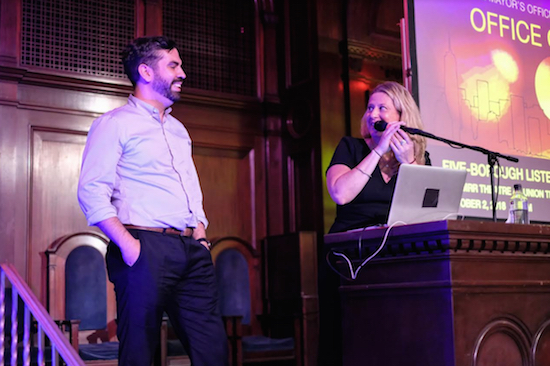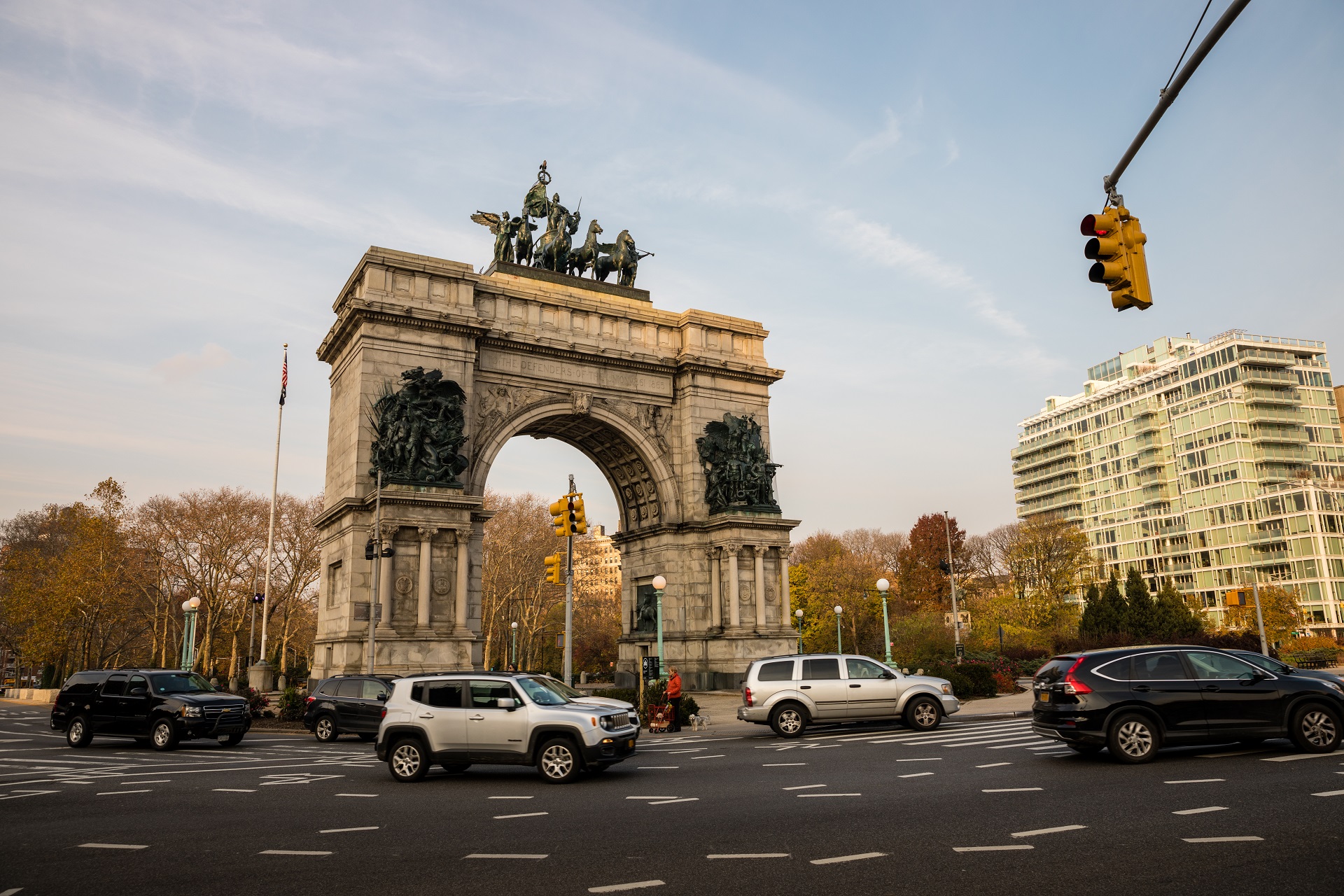‘Unprecedented’ Nightlife Town Hall creates new dialogue between residents and city
Is Brooklyn the next Berlin?

The Office of Nightlife’s Night Mayor Ariel Palitz (right) and Councilmember Rafael Espinal, who sponsored the bill creating the new agency, address the crowd in Prospect Heights on Tuesday. Photos by Kenny Rodriguez
Brooklyn is the only borough in the city where electricity usage actually increases after 7 p.m., according to Con Edison and Borough President Eric Adams.
In other words, Brooklyn comes alive at night.
It was, therefore, only fitting that the inaugural session of the Office of Nightlife’s five-borough Listening Tour took place in Kings County.
